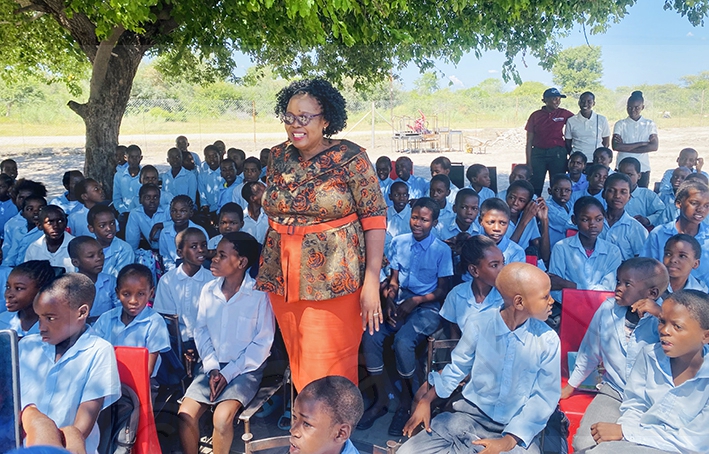Ministry adopts scientific approach to boost farming
30 Aug 2016
The Ministry of Agriculture has been working on inculcating modern technological and scientific approaches to farming amongst local farmers as a means of boosting national food security.
In an interview, the director of agricultural research in the ministry, Dr Pharoah Mosupi said that the ministry was contributing to government’s pledge to take Batswana out of poverty by using modern means of increasing food produce.
“We have been encouraging the use of mechanised farming, the use of modern technologies in order to boost food production.This has been visible in the larger commercial farms around the country, but we are mindful of the fact that most subsistence farmers do not readily afford modern machinery,” he said.
As a consequence, the MoA, through its agricultural demonstrators, and officers who often conduct workshops and education campaigns amongst subsistence farmers, has worked on means of educating farmers to use affordable scientific means.
“We encourage row planting and conservation agriculture, ensuring that the way that farmers till the land conserves moisture, so as to get the best yield. We also support the use of a variety of crops that are tolerant to the particular part of the country the farmer is based at,” Dr Mosupi said.
He said they encourage ‘climate smart’ agriculture, saying that they observed the ecological conditions of each area of the country before advising farmers on the agricultural methods to use.
Furthermore, Dr Mosupi said that crops such as millet, soghum, and cowpeas were drought resistant, whereas maize needed more moisture, and as such they encouraged the ploughing of maize along riverbeds and other areas where there was a ready source of water supply.
In terms of livestock farming, Dr Mosupi said that they also encouraged farmers to keep animal breeds that could be sustained over a longer period of time.
“We have artificial insemination centres across the country, which assist greatly in creating particular breeds that are relevant to our conditions. We are currently encouraging our own Mosi breed, as well as the Tswana breed, which do not cost farmers a lot in terms of inputs. We do not want our farmers to fail,” he said.
Dr Mosupi said that when the country faced drought conditions, they taught farmers to de-stock, and keep the relevant number of herd that could be sustainable.
“The problem is that farmers in both commercial ranches and communal areas do not have carrying capacity. We normally look at the number of livestock per unit of land and find out that most of our farmers overstock. They need to keep a good number that can allow for their farming to be successful,” he said.
Dr Mosupi said that while the contribution of agriculture to the national Gross Domestic Product seemed to have shrunk since independence, this was due to other sectors such as mining and tourism growing as opposed to agriculture reducing in real terms.
“We have established farms such as Mosisedi and in areas such as Dukwi and Nshakazhokwe we are planning more commercial farms. Also through programmes such as LIMID we have greatly improved the amount of hectorage under tillage in Botswana,” Dr Mosupi said.
He said they were assisting in improving food security in the country, as a part of the government’s pledge which included making job creation a number one priority, taking Batswana out of poverty, increasing education funding as well as fighting corruption in all its manifestations. ENDS
Source : BOPA
Author : Pako Lebanna
Location : GABORONE
Event : Interview
Date : 30 Aug 2016





